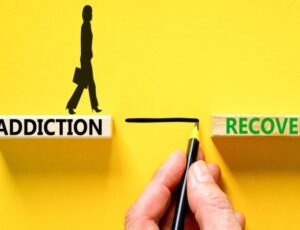To begin overcoming opioid addiction, the first essential step is checking into an opioid detox center. Here, a person receives the necessary help to begin the process of opioid detoxification and withdrawal management. By relieving the physical hurts of detox and the emotional detoxing challenges, these centers help ease the start of recovery.
Why Withdrawal Happens
Opioids, like other drugs, have effects on the brain. An opioid’s effect can include pain relief and give the person a feeling of happiness. The brain, over time, adapts to and depends on the drug to function. Stopping opioid use suddenly triggers the withdrawal symptoms as the brain and the body have to reset and rebalance.
Knowing the reason withdrawal happens can help alleviate some anxiety surrounding the detox journey. It’s important to understand that withdrawal is a response to the absence of a substance and is an absence of willpower. It’s not a sign of weakness, but a reaction to changes in the body as a result of some physical and chemical changes.
Frequently Experienced Withdrawal Symptoms from Opioids
Withdrawal symptoms are typically organized into categories for clarity, although these categories may not fully encompass the individual nature of each person’s experience. Common withdrawal symptoms include the following:
- Musculoskeletal pain
- Restlessness, insomnia, fatigue
- Rhinorrhea and tearing
- Chills and diaphoresis
- Gastrointestinal Disturbances
- Hypertension and tachycardia
- Emotional distress, including anxiety, irritability, or depression
- Intense drug cravings
These symptoms may commence within a few hours following the final dosage and often reach their peak within the first few days. In the absence of appropriate medical intervention, these symptoms can be severe, creating a high risk of relapse, especially in the early stages of recovery.
Phases of Opioid Withdrawal
The withdrawal process typically adheres to a baseline schedule:
Early stage (6–12 hours post last dose): Muscle ache, restlessness, and anxiety begin.
Peak stage (1-3 days): Intense nausea, vomiting, chills, and drug cravings.
Later stage (4-7 days): Reduced physical symptoms, but still fight emotional challenges.
Post-acute stage (weeks to months): Changes in mood, anxiety, and sleep disturbances, but remain.
This should not be interpreted as diminishing the importance of medical care. Detox, while necessary, can be a grueling process, and having a healthcare practitioner, often in a clinical capacity, during these periods of acute suffering can be invaluable.
How an Opioid Detox Center Works
An opioid detox center provides patients with professional withdrawal management through medical supervision and therapy, and minimizes discomfort as much as possible. Key benefits include:
- 24/7 medical monitoring ensures vital signs and potential complications are attended to
- Medication-assisted treatment (MAT) aimed at discomfort and cravings suppression
- Nutritional and hydration support to bolster physical resilience
- Emotional counseling to prepare patients for extended treatment
Detox centers help to address physical and mental factors, which increases the chances of withdrawal completion and progress in the recovery journey.
Relieving Opioid Withdrawal Symptoms
Healthcare professionals can provide specific medications to help manage withdrawal symptoms and make detoxification processes safer:
- Buprenorphine: Withdrawal symptoms and cravings are reduced.
- Methadone: Supports gradual tapering.
- Clonidine: Alleviates anxiety, agitation, and sweating.
- Naltrexone: Blocks opioid effects post-detox to prevent relapse.
These medications are prescribed and managed closely to ensure the detoxification process is safe and effective.
Emotional and Psychological Symptoms
Detoxification has emotional challenges alongside physical ones. Anxiety, irritability, depression, and fluctuations in mood are common. These emotional changes are just as difficult as the physical symptoms, and if not properly treated, withdrawal symptoms may heighten the risk of relapse.
Opioid detox centers usually offer counseling and/or therapy as part of the detox process, and this early form of support helps patients process emotions and learn coping mechanisms, as well as begin to prepare for later stages in recovery mentally.
Preparing for Detox
Having a detox plan makes the process more straightforward and less scary.
- Look into opioid detox clinics and ensure they offer tailored care.
- Notify close family and friends who are ready to support you during the process.
- Understand that discomfort, if you do happen to feel it, is the body’s way of healing.
Developing a clear strategy and maintaining realistic expectations increases commitment.
Managing Withdrawal in a Healthy Way
Withdrawal isn’t simply a process of discomfort, and some techniques can improve this phase, including:
- Staying hydrated to mitigate fatigue and headaches.
- Consuming nutrient-dense food to restore physical strength.
- Practicing relaxation methods, including deep breathing and meditation.
- Following medical advice related to prescription medication and care routines.
- Mild exercise to boost mood and blood flow.
These techniques can help relieve some detox symptoms and strengthen a person’s resilience.
Transitioning After Detox
The process of detoxing is just the initial stage in the treatment process. After the withdrawal phase is complete, the person is encouraged to proceed with structured treatment to manage the psychological and behavioral components of addiction. Some of the sequential steps include:
- Inpatient rehab: Delivers acute, 24-hour care and therapy.
- Outpatient programs: Permit ongoing treatment while residing at home.
- Therapy and counseling: Identifies the underlying issues related to addiction and provides strategies for healthy coping mechanisms.
- Support groups: Provide positive peer motivation.
Further treatment post-detox significantly minimizes the chances of relapse.
Preventing Relapse
Recovery and detox go hand in hand with abstinence avoidance for addiction relapse in mind. The following are primary strategies to focus on:
- High Risk Situations and Triggers
- Peer Support
- Continuous Therapy and Support
- Daily Stress Management
With your resolve and these tools in place, problems will not throw you off your steadfast will for addiction addiction-free life.
Relying on your Support Networks
It is supporting the individual with their care, and it is the last thing.
Overcoming the Fear of Detox
Because of these issues, asking for help, seeing people, and basically existing only in their world, becomes the only way to deal with such major issues. Only recovering experts and professionals will help put the pieces back together for these patients.
Post-Detox
One of the severe challenges for the individual and pearl has nothing to do with the physical factors it brings. The number of opioids patients who have classics hijacked their lives to be hijacked with a never-ending story of physical issues becomes a major achievement.
If you or someone you know is ready to make this important move, Silicon Valley Recovery offers compassionate care and medically supervised detox programs that support patients in every step of the recovery process.




